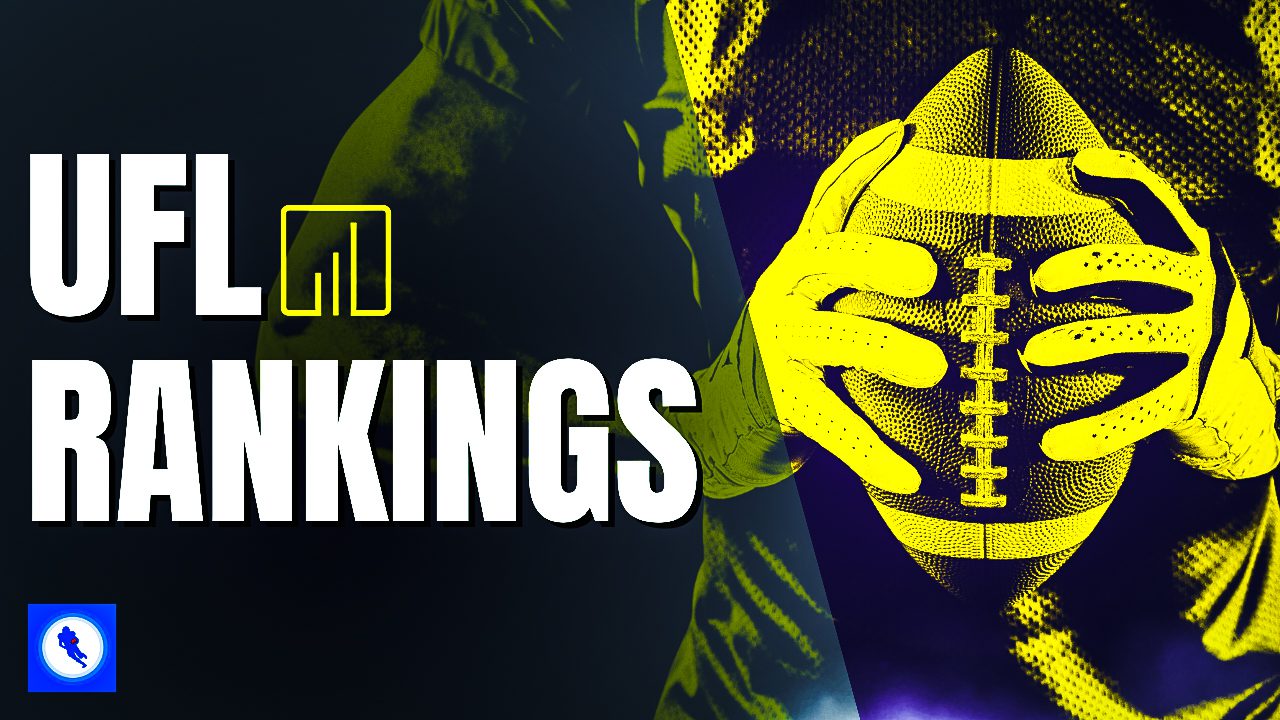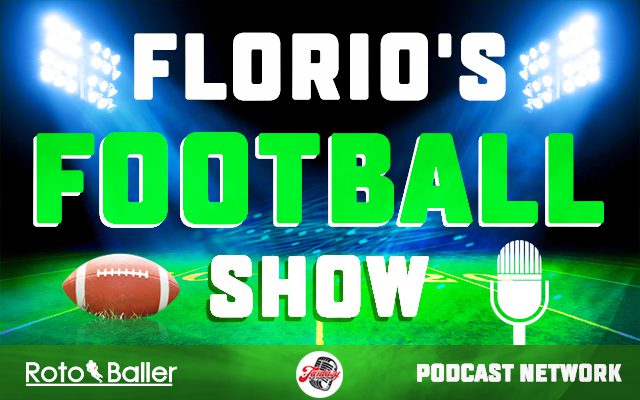Chris O'Reilly's list of potential busts and overvalued players who fantasy football managers may want to consider cutting and dropping for Week 16 of the season.
Today, I'm writing to you as someone who has officially been eliminated from championship contention in both of his home leagues. In one of those leagues, I admittedly never stood a chance. My first five draft picks were Clyde Edwards-Helaire, Kenyan Drake, Le'Veon Bell, Zach Ertz, and Dak Prescott. My goodness, that was brutal just to type. I traded Prescott after a 1-3 start, three days before he suffered his season-ending injury, but I regrettably received Matt Ryan and the shell of Jonathan Taylor in return. Weeks later, I traded Taylor and Drake for Nick Chubb and Julio Jones. Jones basically spent the rest of the season on the injury report, while Taylor and Drake began to perform like competent running backs after I sent them to another team. I finished 6-7, which is actually a hell of a lot better than I'd have expected if you told me what kind of luck I'd run into ahead of time.
In my other league, I finished 8-5 with the third-most points. While my 6-7 team crumbled like a pathetic band of cowards under the weight of adversity, my 8-5 team thrived in it. I lost George Kittle for essentially the entire year. Ezekiel Elliott mailed in the second half of the season. Will Fuller V went and got himself suspended. I drafted Chubb in this league and played without him for a month. My top in-season acquisitions were Tee Higgins, who lost his quarterback, and Mike Gesicki, who suffered a shoulder injury prior to the semifinals. Thankfully, this squad took on the identity of its fearless leader, Deshaun Watson. I played the semifinal round with Cole Kmet and Russell Gage in my starting lineup, and I lost by 10 points to a team with Aaron Rodgers, Derrick Henry, Tyreek Hill, and Travis Kelce.
Anyway, as disappointing as it is to be knocked out of the playoffs, Week 15 also marks the end of my fantasy season altogether. I've found that playing in any more than a few leagues turns you into a living version of the Charlie-Kelly-explaining-things-with-graphs-and-charts meme for four months, always facing players in one league you roster in another, and so on. I don't know how some people do it. So I keep it simple. My home leagues are my only leagues. And since I'm done fighting for anything better than third place in either of them, I thought I'd share a few of the 2020-specific lessons I'm taking with me into draft season for 2021.
Be sure to check all of our fantasy football rankings for 2025:- 2025 fantasy football rankings (redraft)
- Dynasty fantasy football rankings
- 2025 NFL rookie fantasy football rankings
- Best ball fantasy football rankings
- Quarterback fantasy football rankings
- Running back fantasy football rankings
- Wide receiver fantasy football rankings
- Tight end fantasy football rankings
Looking Ahead to Next Summer
- Exercise caution with rookie running backs, especially those in "great situations." Jonathan Taylor and Cam Akers are excelling now, but don't let that distract you from how long it took for them to get here. Clyde Edwards-Helaire could not have been drafted into a more fantasy-friendly offense than the Chiefs, and we all know how that's panned out. You had to pay a relatively premium price for these guys in 2020 drafts. Remember this when Najee Harris is coming off the board early in the second round in 2021.
- Just because you can wait on WR doesn't mean you have to. Yes, WR has become the deepest position in fantasy football. It's also become arguably the most valuable. Of the top 24 non-QBs in ESPN standard PPR scoring, 15 of them are wide receivers. Twenty-two NFL teams are led in non-QB fantasy scoring by wide receivers. On seven of those teams, at least two WRs have outscored the highest-scoring RB. There are extenuating circumstances in a number of these situations, many of which are due to injury, but the point remains. There is merit to loading up on wide receivers early even if you can find serviceable players later on.
- Rushing upside at QB is a necessity, not a bonus. If you took away the rushing stats of both Kyler Murray (QB1) and Kirk Cousins (QB11), Cousins would have roughly 13 more fantasy points than Murray in ESPN standard scoring. Drew Brees has not had a very Drew Brees-like season, and he missed four games. If you eliminated rushing from QB scoring, he'd have more fantasy points than Lamar Jackson. I'm not bringing this up to suggest Murray and Jackson "aren't good." They're magnificent. I'm simply trying to highlight that the total package of what constitutes a "good" quarterback these days--particularly in fantasy--includes the ability to run. All of the top nine QBs in fantasy scoring as of this writing have run for at least 380 yards or multiple touchdowns. Four (Murray, Jackson, Deshaun Watson, Josh Allen) have achieved both thresholds.
These are my thoughts. Do with them what you will. But if you're reading this, it's because you don't need to look forward to next year yet. You have a championship to play for. So, as is promised in the title of this column, let's get to the Week 16 Cut List.
Droppable Players
Evan Engram, New York Giants
87.4% rostered
They say volume is king. If that were definitively true, Evan Engram would be a key component of championship-caliber fantasy rosters everywhere. He ranks third among tight ends and 27th among all players in total targets. Unfortunately, he's TE14 in ESPN scoring. At some point, competent quarterback play matters, and Engram has decidedly not had that in Daniel Jones and Colt McCoy.
Engram has failed to top 50 receiving yards in three straight games, and hasn't visited the endzone since Week 9--his lone receiving touchdown on the season. In Week 16, he'll square up with the Ravens, who are a middle-of-the-pack matchup for TEs you might consider targeting if the TE in question had demonstrated better recent form. With Engram wasting away in one of the NFL's worst QB situations regardless of who starts under center for the Giants going forward, he's extremely difficult to trust with a trophy on the line.
Michael Pittman Jr., Indianapolis Colts
34.2% rostered
My apologies if you held onto Michael Pittman based on my advice a couple weeks ago. The volume was there and his schedule in Weeks 14-15 provided hope for some serviceable output. Needless to say, none of that panned out. Pittman has four catches on eight targets for 61 yards in his last two games. Even as the Colts have found themselves in high-scoring games, Pittman has been a nonfactor. Indy's offense has become somewhat top-heavy with the resurgence of T.Y. Hilton and the breakthrough of Jonathan Taylor, taking away from the spread-it-around identity the Colts displayed earlier. Up next for the rookie wideout is Pittsburgh; if he couldn't get anything going against the Raiders or Texans, this sure isn't the time to roll the dice.
Boston Scott, Philadelphia Eagles
18.8% rostered
There are afterthoughts, and then there is the trajectory Boston Scott has been on in recent weeks. With Miles Sanders back and playing well, Scott has seen his snap rate dwindle steadily over his last five games, bottoming out at 18% in Week 15--his lowest in a game since October. On the rare occasion Scott sees the field, he isn't seeing the ball. He has just five rushing attempts and two catches in his last three outings. Turning the offense over to Jalen Hurts gives the Eagles a secondary rushing threat who's always on the field, negating much of the need for an actual second-string running back. Short of an injury to Sanders, there is no conceivable reason for Scott to recapture a prominent role.
Breshad Perriman, New York Jets
15.5% rostered
Breshad Perriman is a weapon best utilized on downfield throws. Among receivers with at least 40 targets in 2020, Perriman's 14.7-yard aDOT ranks seventh. Unfortunately for Perriman, he plays in an extremely limited offense that doesn't often find itself opening up the field for deep shots. Sam Darnold ranks 23rd out of 36 qualified quarterbacks in intended air yards per pass attempt at 7.6. It should come as no surprise, then, that Perriman has suffered as a fantasy option in the seven games Darnold was his QB.

I don't know that you needed any visual reference to illustrate why Perriman is not a safe play in championship-week lineups, but that one tells the story more concisely than I could have. Perriman hasn't topped 30 receiving yards in three straight games, recording just five total catches in that span.
Anthony Miller, Chicago Bears
11% rostered
Even the admirable late-season resurrection of Mitchell Trubisky hasn't propped Anthony Miller up from a fantasy standpoint. Miller has seen a steady downtick in passing-game involvement over his last six games, culminating in an unsightly one-target outing in Week 15. He's come in under 30 yards receiving in three of his last four, with just two double-digit PPR performances to his credit since Week 8. Further crippling his end-of-season outlook is that David Montgomery has gone nuclear out of the Bears backfield in recent weeks, reducing the need to involve Miller through the air. In any case, this is a downward trend you'd have been well-served to steer clear of weeks ago. Now it's just a clear-cut indication that Miller shouldn't be allowed anywhere near your starting lineup.
Other Options To Consider Dropping
- Keelan Cole Sr., Jacksonville Jaguars
- Marquez Valdes-Scantling, Green Bay Packers
- Devontae Booker, Las Vegas Raiders
- Harrison Bryant, Cleveland Browns
- David Moore, Seattle Seahawks
Download Our Free News & Alerts Mobile App
Like what you see? Download our updated fantasy football app for iPhone and Android with 24x7 player news, injury alerts, rankings, starts/sits & more. All free!

More Fantasy Football Analysis
 RADIO
RADIO


























